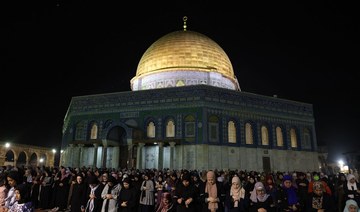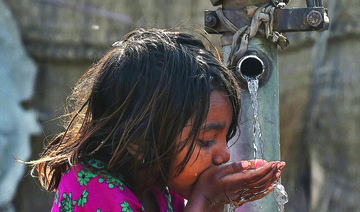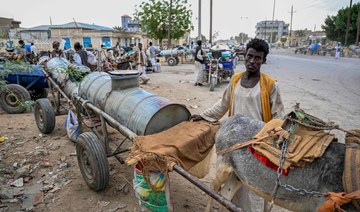GAZA CITY: Ramadan is a holy, spiritual month of peace, reflection and prayer in most Muslim countries and communities. For Palestinians in Gaza, however, it has come to be associated with escalations in violence and the outbreak of war, given their experiences in previous years.
Residents have endured the effects of repeated, intense military confrontations between Hamas and Israel during Ramadan for many years, along with shorter bursts of violence.
In recent months there have been growing concerns and warnings about the possibility of a large-scale military conflict between one or more of the Palestinian factions in the Gaza Strip and Israel during the holy month, in light of what is seen as continual provocations by Israeli authorities in the West Bank and Jerusalem.
“With every month of Ramadan, every year, we are on a date with a military confrontation or escalation that will last for days, which leaves us during every month of Ramadan in a state of fear and anxiety,” resident Rasmiya Al-Mabhouh, 60, told Arab News
She lives with her four children in a three-story house that was severely damaged during a recent conflict. She fears another escalation of hostilities during Ramadan this year might force her family out of its home once again.
“Our house was damaged in 2021 and we left it and moved to a relative’s house during that period,” Al-Mabhouh said. “There is concern this year that we will return to an escalation during Ramadan, which may cause us to not be able to stay indoors again.”
Fears of the threat of renewed violence have grown as a result of the prevailing security conditions in the West Bank and fears that unrest there might spread to the Gaza Strip. The escalation in tensions since the start of last year has been focused mainly in the northern West Bank, where Israeli incursions into cities and the killing of Palestinians have provoked threats from Palestinian factions, in particular Hamas and Islamic Jihad, to launch rockets into Israel from Gaza.
Sheikh Saleh Al-Arouri, deputy head of the Political Bureau of Hamas, confirmed in an interview published on the organization’s official website that “the occupation’s attempt to use the month of Ramadan to impose its policy of temporal and spatial division and to allow settlers to perform Talmudic rituals will be met with a reaction.”
He added: “The occupation should not expect that its attempts will pass without a strong response from our people and our resistance, and we warn it against going too far in that, and stress that Hamas is closely monitoring the occupation’s steps in Jerusalem and our patience is running out.”
Two separate meetings have taken place in Aqaba, Jordan, and Sharm El-Sheikh, Egypt, during which representatives of Israel, Palestine, the US and the host nations held talks in an attempt to prevent an escalation of violence in Jerusalem and the West Bank that could spread to the Gaza Strip.
Gaza resident Rami Al-Danaf, 51, is worried about the possibility of another military confrontation in the Strip, and said that instead of stocking up in advance with all of the supplies his family needs for Ramadan, as he usually does, he will just be buying what he needs from day to day.
“It was our custom in my family to buy all the needs of Ramadan in advance but this year I did not (do that and will buy) things on an almost daily basis, despite the exhaustion in that, because of the fear of the return of the escalation in the Gaza Strip again,” he told Arab News.
“The threats do not stop. There is talk in the media that war is coming during Ramadan in Gaza, so my wife and children are afraid of that.”
This dread of the prospect of another Ramadan conflict is shared by most Gazans, who are weary of violence.
“We do not wish for war or escalation,” 29-year-old Lina Ayada told Arab News. “We hope that the month of Ramadan and then Eid will pass this year without loss of life or destruction.
“We have seen enough in previous years of those wars, and we hope that the month of Ramadan will be good for all Palestinians in the Gaza Strip, the West Bank and everywhere else.”
























